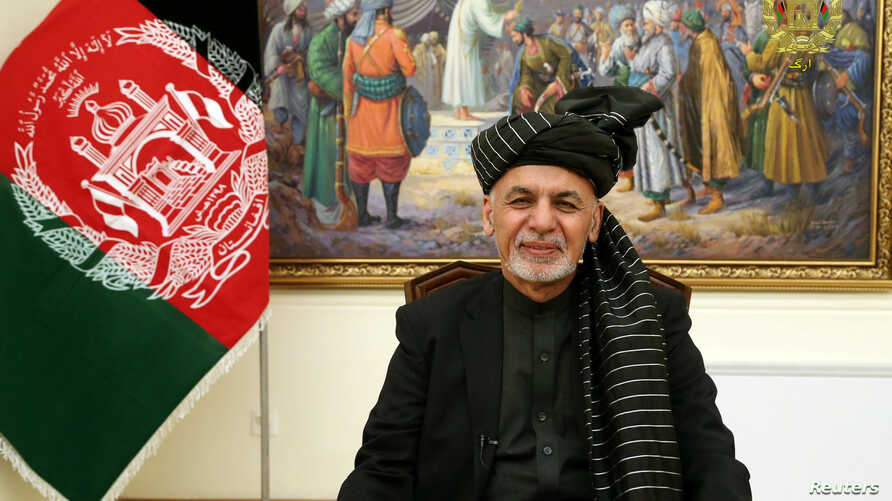It will be very unfortunate for the poor people of Afghanistan if a repeat of 1990s occurs, where, after defeating one of the two superpowers of the time — the Soviet Union — Afghans decided to kill each other for control of Kabul. The ground situation is presenting a similar situation as another superpower — the United States — is leaving the country after two decades of war without any significant achievement. In fact, President Biden’s address about withdrawal from Afghanistan says it all about US success or otherwise. “We went to Afghanistan because of a horrific attack that happened 20 years ago, … that cannot explain why we should remain there in 2021.” Biden said in a White House speech on April 14, 2021. Therefore, instead of discussing US accomplishments in Afghanistan, which are significant in terms its military spending and fatalities on both sides, it is necessary to explore the short- to medium-term future of the war-ravaged state and its people.
The Trump administration signed a landmark peace agreement with Taliban in Doha on February 29, 2020, to end the war in Afghanistan. According to Doha Agreement, US withdrawal from Afghanistan was to be completed by May 1, 2021, however, the Biden White House has both stalled and accelerated the final exit; first revising it back to September 11, 2021, perhaps for symbolic reasons, before the forward revision to another symbolic date, July 4, America’s Independence Day.
Now that the US withdrawal from Afghanistan has formally started, so has the infighting between the Taliban and the Afghan National Army, as expected, though unfortunately. The US knows that Afghan President Ashraf Ghani would have little control over the country and therefore, reportedly, outgoing US forces have started to destroy sensitive military equipment so that it does not land into the hands of Taliban.
Perhaps time is running out for the regional countries to intervene, because the Taliban have already rejected all peace deals offered by President Ghani. One needs to understand that the Taliban have their roots amongst the people and will not accept any puppet set-up as in the era of foreign occupation
History does repeat but for the people of Afghanistan, it has returned too soon. Soviet withdrawal from Afghanistan began on May 15, 1988 and completed on February 15, 1989. While the people of Afghanistan were still celebrating their victory — different Afghan resistance groups started to fight for the control of Kabul which was firmly held by President Najibullah, with Soviet support. This infighting continued until 1992 when Najibullah decided to step down from the presidency. Subsequently, Najibullah was removed by his own generals, the Afghan civil war continued beyond 1992 with more and more groups joining with their battle-hardened and fearless soldiers. The continued rivalries and severity of the infighting led to the emergence of Taliban who ruled Afghanistan between 1996 to 2001. However, Taliban government was only recognised by Pakistan, Saudi Arab, and United Arab Emirates.
Without going into the details of US war in Afghanistan between 2001-2021, it is necessary to suggest measures to avert the return of the civil war of 1990s. As the situation stands, the repeat of the 1990s is inevitable, however, active intervention of the regional stakeholders may be able to circumvent the second civil war in Afghanistan, which the people can ill afford. The regional countries which may have some leverage over various Afghan fighting elements include Russia, China, Turkey, Iran, and Pakistan. For the purpose, a multilateral conference was scheduled to take place in Istanbul-Turkey between April 24 to May 4, 2021, however, it was postponed due to Taliban’s boycott in protest of delayed US forces’ withdrawal from Afghanistan. Taliban categorically stated that they would not participate in any international conference on Afghanistan until all foreign forces have left the country.
While Taliban viewpoint was given the due consideration and the conference was postponed, the fighting continues between Taliban forces and the Afghan National Army. As expected, Taliban have started to gain ground and since captured the second biggest dam, Dahla, in Kandahar, which provides water irrigation canals as well as the drinking water for the provincial capital. Fierce clashes are also reported from Helmand province and reports of people migrating from the area are being confirmed by the sources.
Perhaps, time is running out for the regional countries to intervene, because Taliban have already rejected all peace deals offered by President Ghani. One needs to understand that Taliban have their roots amongst the people, and they will not accept any puppet setup of the era of foreign occupation. Ghani must not become Najibullah of the past and stop relying on the outgoing US support, before it is too late for him, personally. The avoidance of second civil war in Afghanistan is in the interest of regional states and not the US or NATO.
Dr Shamsi is Director of Peace & Conflict Studies (CASS) and the author of the book ‘Nuclear Deterrence and Conflict Management Between India and Pakistan.’ The article was first published in Daily Times. He can be reached at cass.thinkers@gmail.com
Image source: Tanzeem, Ayesha. “Have Taliban Turned Tables on Ashraf Ghani? | Voice of America – English.” www.voanews.com, February 8, 2019. https://www.voanews.com/south-central-asia/have-taliban-turned-tables-ashraf-ghani.




